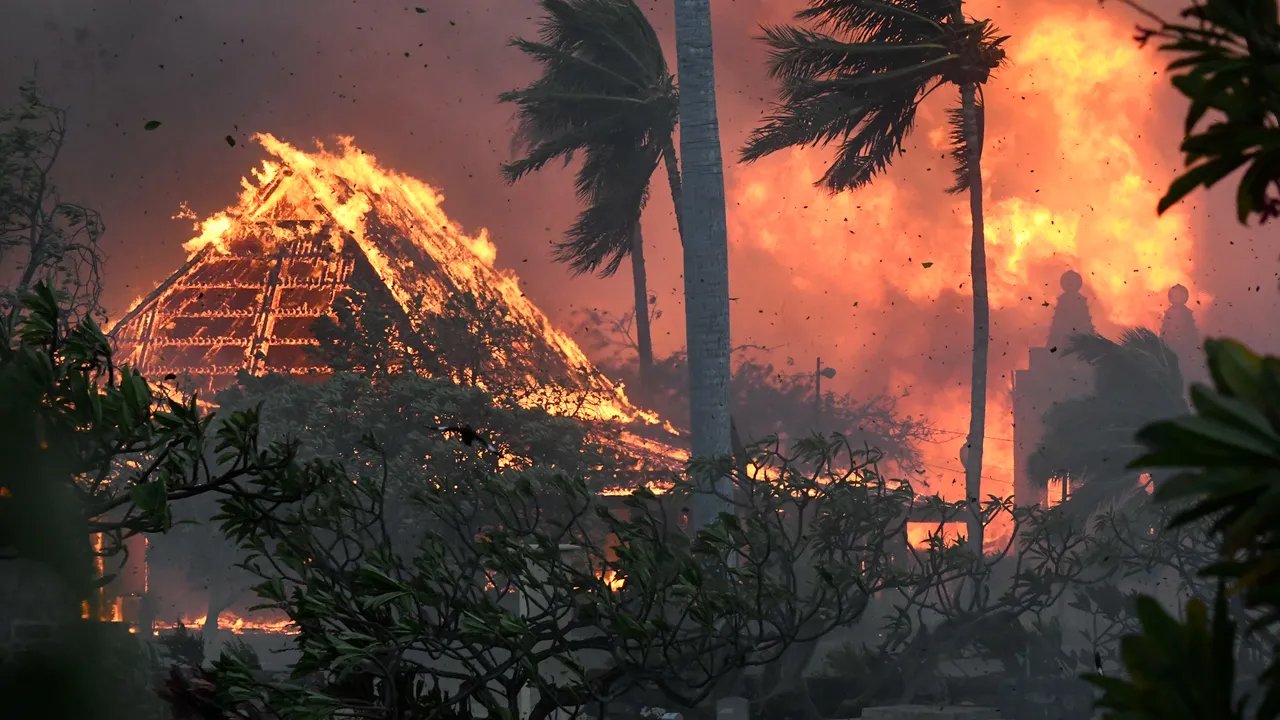In a harrowing turn of events, a deadly wildfire has swept through the picturesque landscapes of Maui, Hawaii, leaving behind a trail of destruction and claiming the lives of 36 individuals. This catastrophe marks one of the deadliest wildfires to have ravaged the United States in the past five years, sparking grief and shockwaves across the island community and far beyond.
The once-idyllic island of Maui has been transformed into a scene of devastation as the ferocious blaze, which initially ignited on Tuesday, gained momentum with alarming speed. Fueled by dry and unfavorable weather conditions, as well as propelled by strong winds, the flames have exhibited an unrelenting appetite for destruction, consuming homes, neighborhoods, and even historic sites that held cultural and sentimental significance. The fire’s rapid advancement caught many residents off-guard, leaving them with no choice but to evacuate swiftly in the face of imminent danger posed by the inferno.
The gravity of the situation is further compounded by communication challenges that have emerged during the crisis. Interruptions in emergency services have posed significant hurdles for those seeking aid or attempting to locate missing loved ones. In the midst of these challenges, rescue teams are working tirelessly, navigating the evolving landscape and establishing firebreaks to gain control over the flames and reach areas affected by distress.
Authorities are prioritizing the preservation of life and the safety of the public as they grapple with the complexities presented by the Hawaii wildfires. The impact of this calamity has been deeply felt across Maui, prompting the evacuation of numerous residents, including tourists who sought refuge from the relentless march of destruction.
Amidst the devastation, concerns about the implications of climate change-induced extreme weather events have been brought into sharp focus. The wildfire’s ferocity serves as a poignant reminder of the urgency to address climate-related challenges and their potential catastrophic consequences.
Responding with urgency, President Joe Biden swiftly declared a major disaster in the afflicted region of Maui, signaling a federal commitment to aiding recovery and reconstruction efforts. The Federal Emergency Management Agency (FEMA) has mobilized resources and personnel to provide assistance to those whose homes have been damaged or obliterated by the relentless blaze.
As the island of Maui grapples with the aftermath of this devastating wildfire, communities are uniting to support one another and navigate the arduous path toward recovery. Amidst the ruins, stories of resilience, compassion, and strength are emerging, demonstrating the human spirit’s unwavering capacity to endure in the face of adversity.




